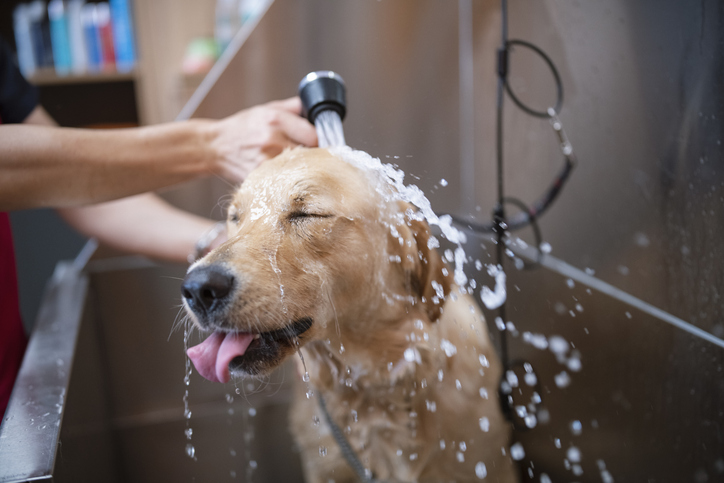As the weather turns colder and air conditioners give way to furnaces, homeowners call their heating oil providers and say “fill’er up.”
More than 100,000 homeowners in Pennsylvania heat their homes with oil, meaning that their basements are homes to large, typically 150 gallons or more, heating oil tanks.
Despite sometimes high costs, oil heat remains an efficient, clean and safe way to heat a home. However, the dangers and hazards associated with home heating oil often result from problems during the filling of those tanks. Having a grasp of the common risks can be helpful when working with clients selling or buying a home serviced by oil heat.
One source of potential danger is the absence or failure of a “whistle.” Typically, during filling of a tank from outside the home through a fill pipe, a second vent pipe will make a whistling sound while air in the tank is displaced by oil and escapes through the vent pipe. As the tank nears capacity, the whistling slows, then stops as the last of the tank’s capacity is filled with oil. At this point, the delivery person knows to stop pumping oil. Problems occur where there is another opening in the tank that is not properly plugged. Such openings are usually necessary to allow flexibility in installation of the tank. Where such openings exist and are not plugged, displaced air rushes out through that larger opening, without making any noise audible to the tank-filler outside. This can, and often does, lead to an overfill of the tank and a release or spill of heating oil into the home.
Other sources of danger are existing fill pipes that are no longer in use because the present, or even past, homeowner converted to another source of heat and had the oil tank removed. Should a neighbor with the same numerical address on a different street call for oil, and that address be misread or otherwise misunderstood, a significant amount of heating oil could be pumped directly into a home’s basement.
The above scenarios can, and do, happen more than you would think, and occasionally while a property is listed for sale. When it does, the next step is crucial. Often, the oil company will simply offer to clean up the spilled oil, apologize and go away. The homeowner is then left with a home inundated with petroleum fumes that soak into the curtains, the carpet, the furniture and the family’s clothes. These fumes can cause headaches and nausea, affect ability to sleep and potentially cause greater illness.
In addition, the spilled oil soaks into the soil, even if the basement has a wooden or concrete floor. Once in the soil, contaminants can leach into the groundwater, which could then affect the quality of well water or flow into nearby streams. Under Pennsylvania law, any pollution of a water of the commonwealth is illegal, and if the source of the contamination is a home, the owner is responsible for remediation.
There are simple safeguards to consider. First and foremost, if the home does not have a home heating oil tank, make sure your home does not have an oil intake or fill pipe. If it does, have it removed immediately by a qualified contractor, or take steps to ensure that it is otherwise disabled. Also, alert an oil delivery company that the pipe is not to be used, whether you tape it up tight, put a lock on the cap or hang a sign on it reminding others to not put oil in there. Pennsylvania law has provisions requiring the removal of such fill pipes.
In homes where there is an operating oil system, consider having the tank inspected by a qualified professional. At the very last, look the tank over to make sure it has no openings from which oil can escape. Try to schedule oil deliveries when you will be home, so that if there is an overfill, it can be stopped immediately.
In the event of an overfill, don’t panic. The owner should be directed to contact the oil company and explain what happened. The homeowner should also be directed to contact his/her insurance carrier and consult the applicable policy. An insurance representative should come to the house immediately and preferably before the oil company begins to clean up. The owner should be directed to contact a lawyer to help guide the owner through the maze of Department of Environmental Protection regulatory requirements, the often-confusing provisions of your homeowner’s policy and the complex system of potential liability for clean-up of the spill. An attorney can also help select an environmental consultant capable of overseeing the clean-up to make sure the home and the environment are safe.
Remember, the Department of Environmental Protection is concerned only with keeping the environment clean, not who foots the bill. Trying to deal with the oil company or an insurance company could wind up costing the homeowner a significant portion of the clean-up costs.
Topics
Member Discussion
Recent Articles
-
Homeowner’s Insurance Problems? We’ve Got a Form for That!
- February 14, 2025
- 4 min. read
Whether working with buyers or sellers, be sure to take another look at these existing contingencies to understand how they might work in your transactions, and then talk with your clients.
-
Young Adults Still Waiting to Move Out
- February 13, 2025
- 2 min. read
The most recent data from 2023 reported 17.8% of young adults living with parents in Pennsylvania, with neighboring states seeing some of the highest shares.
-
10 Luxury Home Trends of 2024
- February 12, 2025
- 2 min. read
Luxury homeowners went big last year, focusing on health and well-being, comfort and security and finding joy.
Daily Emails
You’ll be the first to know about real estate trends and various legal happenings. Stay up-to-date by subscribing to JustListed.



